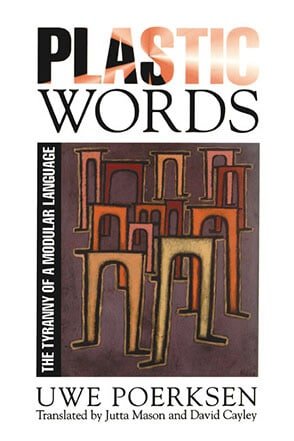Plastic words: the tyranny of a modular language
The blurb…
“Development” “Project” “Strategy” “Problem” These words are examples of what German writer and linguist Uwe Poerksen calls “plastic words” because of their malleability and the uncanny way they are used to fit every circumstance.
All told, they probably number no more than thirty or forty, but their usage is widespread. At first they seem marvelously versatile, but in reality they are slippery and elusive, making it impossible to pin down their meaning. And therefore, Poerksen suggests, they are dangerous.
According to Poerksen, plastic words began as scientific terms with highly specialized meanings. Many had been imported to the sciences from the vernacular languages of English, German, Spanish, and French, but he finds that in recent decades they have migrated back into the vernacular – stripped of their specialized meanings. They displace more precise words with words that sound scientific but actually blur meaning and disable common language.
In the mouths of society’s experts – politicians, professors, corporate officials – “they become the building blocks for plans and solutions that may seem utopian but that end up impoverishing the world”
